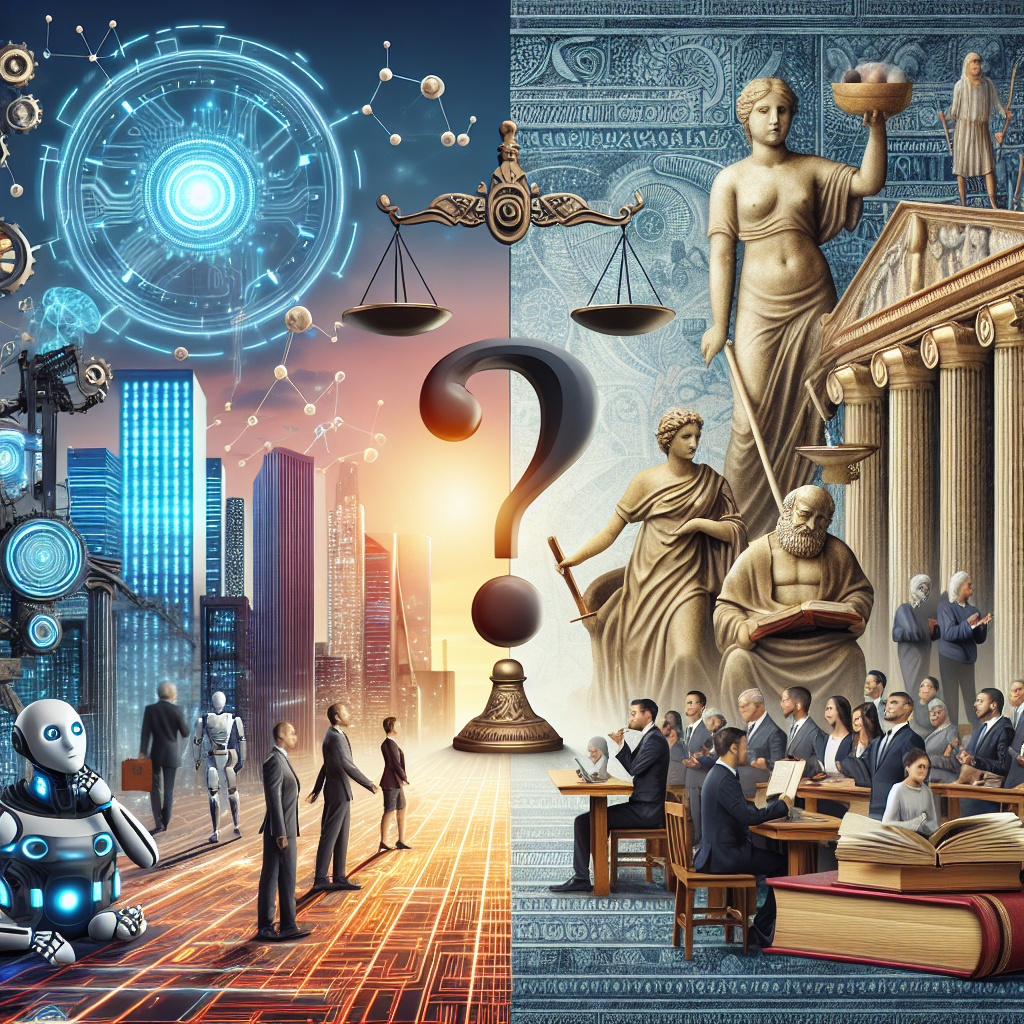Artificial General Intelligence (AGI) is a concept that has captivated the imaginations of scientists, researchers, and futurists for decades. AGI refers to a hypothetical form of artificial intelligence that possesses the ability to understand, learn, and apply knowledge in a manner that is indistinguishable from human intelligence. While current AI systems excel at specific tasks, such as image recognition or natural language processing, they lack the general intelligence and adaptability of human beings.
The development of AGI holds immense promise for society, with potential applications in fields such as healthcare, education, and manufacturing. AGI could revolutionize the way we work, live, and interact with the world around us. However, the pursuit of AGI also raises a host of ethical implications that must be carefully considered before such technology is widely deployed.
In this article, we will explore the ethical implications of AGI and examine whether humanity is ready for the advent of artificial general intelligence. We will discuss the potential risks and benefits of AGI, as well as the challenges that arise from creating intelligent machines that rival human capabilities. Finally, we will address some frequently asked questions about AGI and its ethical implications.
The Risks and Benefits of AGI
One of the primary ethical concerns surrounding AGI is the potential for misuse or abuse of this technology. As AGI systems become more sophisticated and autonomous, there is a risk that they could be used to manipulate or control human behavior. For example, AGI could be used to create highly convincing fake news or propaganda, leading to widespread misinformation and social unrest. Additionally, AGI systems could be weaponized by malicious actors to carry out cyberattacks or other forms of harm.
On the other hand, AGI also holds immense potential for improving human well-being and quality of life. AGI systems could assist in the diagnosis and treatment of complex medical conditions, optimize resource allocation in industries such as agriculture and transportation, and enhance educational opportunities for individuals of all ages. AGI has the potential to revolutionize the way we address some of the most pressing challenges facing society today, from climate change to healthcare disparities.
However, realizing these benefits will require careful consideration of the ethical implications of AGI. It is essential to establish guidelines and regulations to ensure that AGI is developed and deployed in a responsible and ethical manner. This includes addressing issues such as data privacy, algorithmic bias, and the impact of automation on the workforce. Additionally, it is crucial to involve a diverse range of stakeholders in the development and oversight of AGI systems to ensure that they reflect the values and priorities of society as a whole.
Challenges in Creating AGI
Creating AGI presents a number of technical and ethical challenges that must be addressed before such technology can be safely deployed. One of the key challenges is ensuring that AGI systems are aligned with human values and goals. This requires developing mechanisms for AGI to understand and prioritize ethical considerations, such as respect for human rights, fairness, and transparency. Additionally, AGI systems must be designed to incorporate feedback and input from humans to ensure that they align with societal norms and values.
Another challenge in creating AGI is ensuring the safety and reliability of these systems. AGI has the potential to make decisions that have far-reaching consequences, and it is essential to ensure that these decisions are made in a responsible and ethical manner. This includes developing mechanisms for AGI to explain its reasoning and decision-making processes, as well as establishing safeguards to prevent unintended harm or misuse of the technology.
Finally, the development of AGI raises questions about the nature of intelligence and consciousness. As AGI systems become more sophisticated and capable, it is essential to consider the ethical implications of creating machines that possess human-like cognitive abilities. This includes questions about the rights and responsibilities of AGI systems, as well as the potential impact of AGI on human relationships and societal structures.
FAQs About AGI
Q: Will AGI replace human workers?
A: While AGI has the potential to automate many tasks currently performed by humans, it is unlikely to completely replace human workers. Instead, AGI is likely to augment human capabilities and create new opportunities for collaboration between humans and machines.
Q: How can we ensure that AGI is developed responsibly?
A: Ensuring the responsible development of AGI requires collaboration between policymakers, researchers, industry stakeholders, and the public. This includes establishing guidelines and regulations to govern the development and deployment of AGI, as well as promoting transparency and accountability in the design and implementation of these systems.
Q: What are the potential risks of AGI?
A: The potential risks of AGI include the misuse or abuse of this technology, the amplification of existing biases and inequalities, and the impact of automation on the workforce. It is essential to address these risks through careful consideration of the ethical implications of AGI and the development of safeguards to mitigate potential harms.
Q: How can we address algorithmic bias in AGI?
A: Addressing algorithmic bias in AGI requires careful consideration of the data and algorithms used to train these systems. This includes promoting diversity and inclusion in the development of AGI, as well as implementing mechanisms to detect and correct bias in AI systems.
In conclusion, the development of AGI holds immense promise for society, with the potential to revolutionize the way we work, live, and interact with the world around us. However, realizing the benefits of AGI will require careful consideration of the ethical implications of this technology and the challenges that arise from creating intelligent machines that rival human capabilities. By addressing these ethical concerns and working collaboratively to develop responsible guidelines and regulations, we can ensure that humanity is ready for the advent of artificial general intelligence and harness its transformative potential for the greater good.

